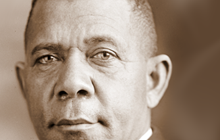In the United States and across the world in the 19th Century, the word “liberal” described someone primarily concerned about liberty. Over the years, the word “liberal,” deliberately adopted by the left in the United States, has come to mean someone committed to greater concentration of power in government, more government spending, and active opposition to traditional values.
Most people now understand the term Conservative to indicate a person who is committed to limited government, free enterprise, strong national defense, and traditional values. For political purposes, these four principles are generally accepted in America as pillars of American conservatism.
The engine of conservative politics in America is the conservative movement, which began largely as a serious intellectual movement in the 1950s. Its principles were already limited government, free enterprise, strong national defense, and traditional values, but it focused primarily on developing its ideas and on the important job of attracting others to those ideas.
In the 1960′s, what had been largely a conservative intellectual movement grew into a formidable, workable coalition of better-skilled, self-identified conservative activists and leaders able to defeat the left in many political contests (elections and legislative battles) and thereby affect public policy.
If ideas, in and of themselves, really do have consequences, then being right, in the sense of being correct, is sufficient. If you know you are right, particularly if you believe you can prove you are right, then your ideas inevitably will prevail. But this refutes the need for action.
Confronted with the failure of his ideas to have their merited consequences, many a young conservative becomes embittered. Some, in the words of the late Dr. Warren Nutter of the University of Virginia, “retreat to the citadel to save the books.” Too few discover how to make their ideas effective. Conservative ideas must be put into political action in order to become conservative policy and produce the desired outcomes.
Conservatives used to not be able to identify and communicate widely with each other except through the filter of media determinedly hostile to conservative principles. Now conservatives have direct mail, talk radio, a cable news network, many new types of online communication, and literally thousands of conservative organizations capable of very quickly communicating facts, conservative opinion, and focused calls to action to thousands or millions of fellow conservatives.
The left is using the power of government not only to grab more power but also to target and persecute conservatives. Used ruthlessly, the I.R.S. and other government agencies can crush many political opponents and terrorize a great many others. This is a very serious abuse, and what’s worse, they have thus far completely gotten away with it. Conservatives must work hard to engage in calling such actions into account.
In an age that requires the use of media acumen and large political strategies in order for candidates to be elected, the use of political consultants has risen to its zenith. For many reasons, wise conservatives have learned to trust and hire only consultants who have demonstrated clearly a commitment to work exclusively for conservative candidates and causes. Hiring “neutral” consultants often results in a loss of principle for the gain of a political brownie point.
At its heart, American politics starts with and stays rooted in the people. Conservatives must continue to educate and enact its principles at the local level. The process is cumulative. Huge numbers of new activists who get their first taste of politics in grassroots activity in one election cycle keep fighting for their principles for decades to come. Always some of them become a new generation of conservative leaders in elections for public office, legislative battles, and intra-party contests. Wise conservatives know that the way to win in politics is to increase the number and effectiveness of principled conservative activists and leaders who are philosophically sound, technologically proficient, and movement-oriented.
The way to grow a party is to treat newcomers fairly, politely, and even cordially and to show them that power in the party frequently flows from the bottom up, rather than only from the top down. When the same organizations and the same leaders work side by side against the same enemies in a long series of election contests and legislative battles, they tend to become comfortable together.
Only a critical mass of principled conservatives can preserve and advance their principles and only if they work together and do not compromise in ways which accept the left’s power grabs as permanent. Conservative principles may be defeated in some elections and legislative battles, but they can triumph in the long run if those principles are faithfully upheld as the alternative to the left’s agenda. That can be achieved through a more widespread understanding of the real nature of politics, which will lead to greater grassroots political participation and the development and emergence of many new leaders.
This is the real nature of politics.








